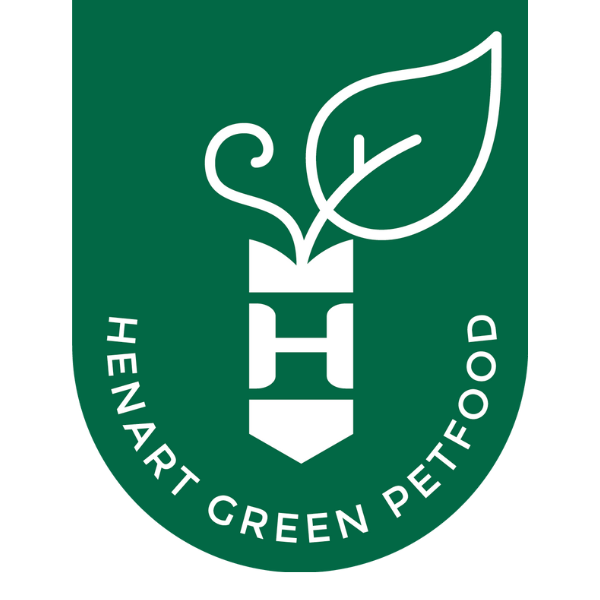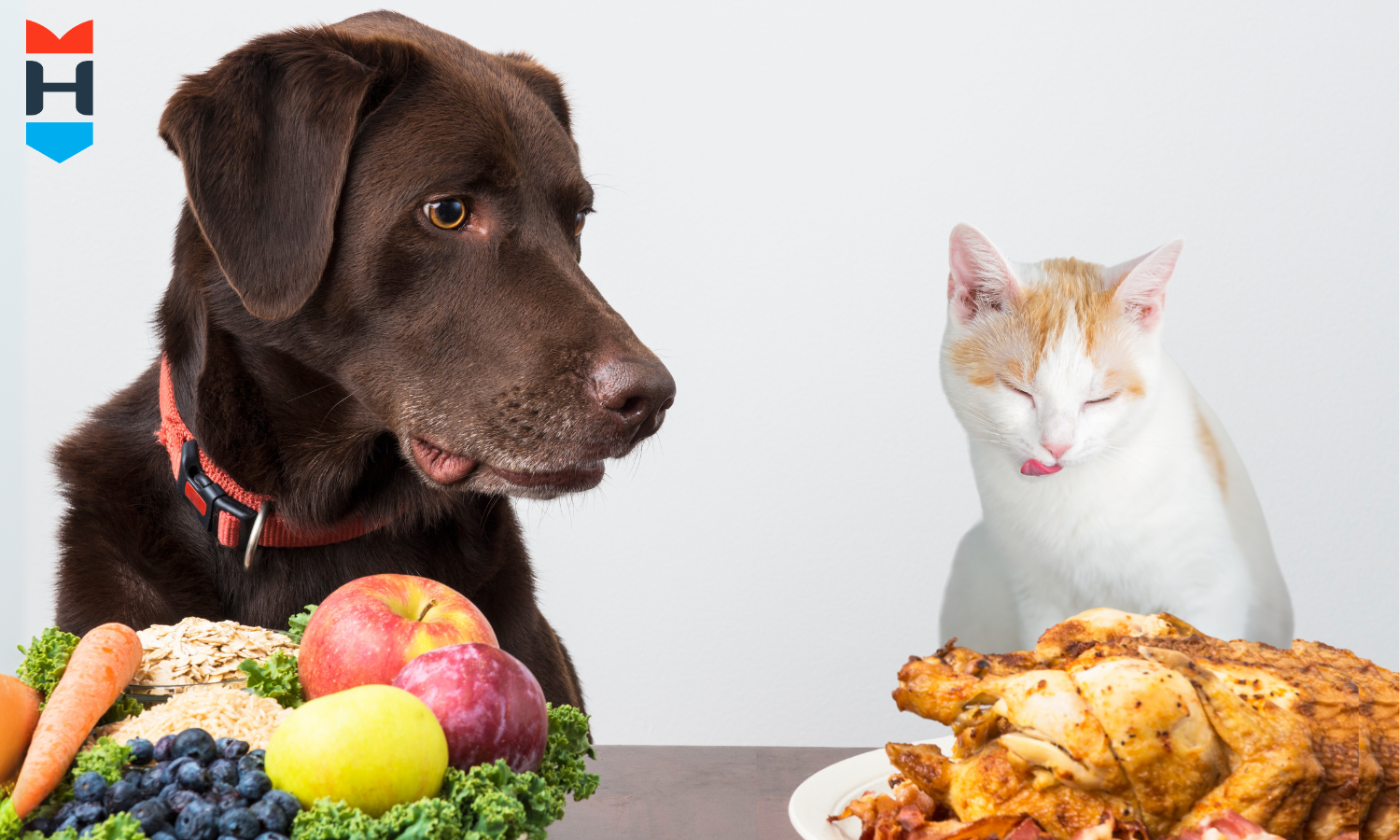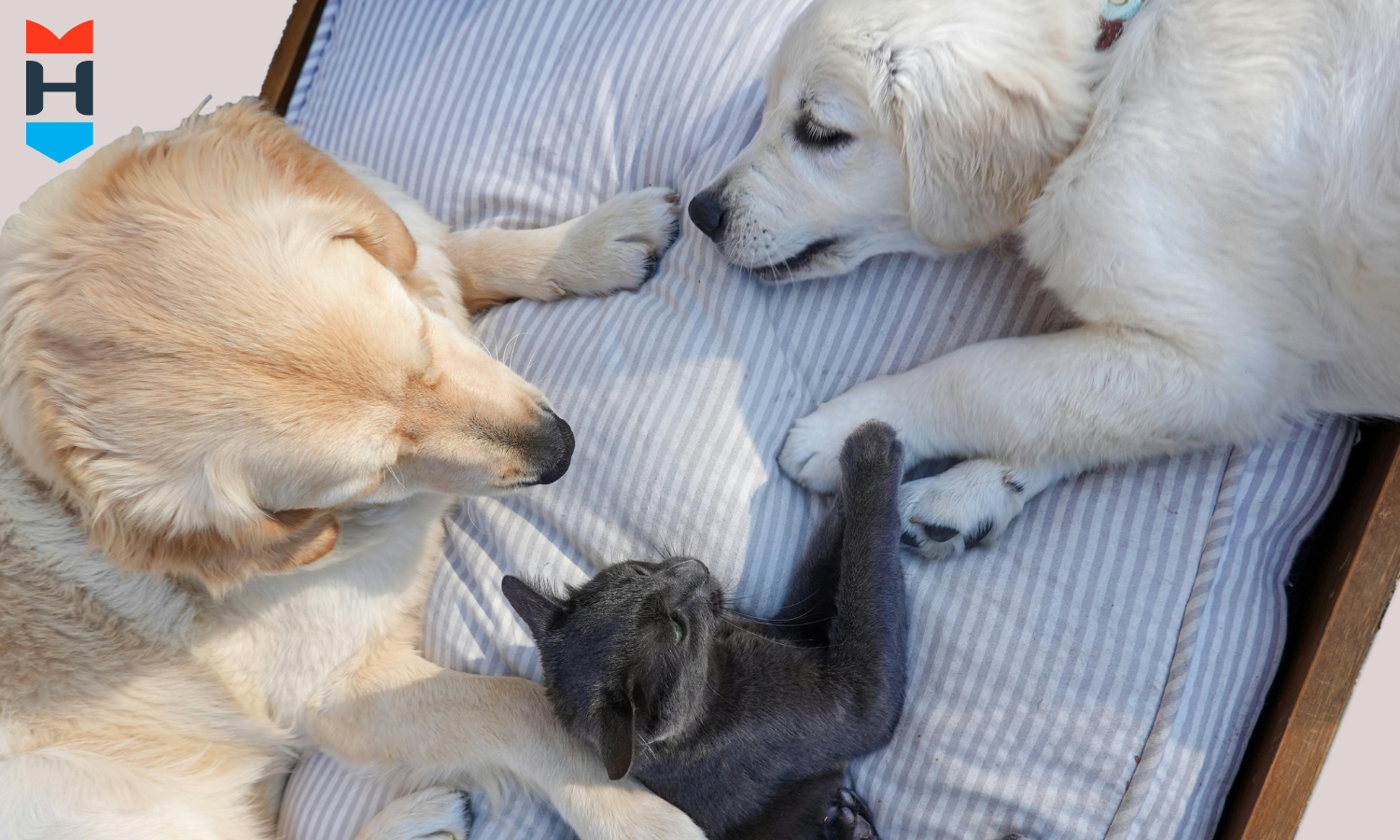Pet guardians worldwide are becoming increasingly aware of food allergies in dogs and cats, which can significantly affect the health and well-being of their furry companions. These allergies are one of the most common health concerns for pets today. Fortunately, with the right nutrition and understanding, many of these issues can be managed effectively.
At HenArt, we not only specialize in plant-based ingredients and insect proteins, but also offer high-quality, balanced meals that meet all pet needs – including food allergies.
In this article, you'll learn what food allergies in pets are, how to recognize them, what treatment options are available, and how HenArt's innovative recipes can help.
What are food allergies in dogs and cats?
Food allergies in pets are abnormal reactions of the immune system to certain food components. Unlike food intolerances, which primarily affect the digestive system, allergies are an immune reaction that can manifest itself in a variety of physical symptoms.
In dogs and cats, food allergies often stem from proteins, which are common triggers in their diet. Proteins from sources such as beef, chicken, dairy, wheat, soy, and fish are known to cause allergic reactions in many pets. When a dog or cat eats a food ingredient they’re allergic to, their immune system mistakenly perceives it as harmful and triggers an allergic response. Over time, continued exposure to the allergen worsens the symptoms.
HenArt recognizes that traditional protein sources like beef or chicken can often trigger allergies. Therefore, we offer alternative, hypoallergenic protein sources like plant and insect proteins that are easier for sensitive pets to digest.
How do food allergies arise?
Food allergies usually develop through repeated exposure to certain ingredients. Genetic factors play a role, as some dog breeds are more susceptible than others. Environmental factors, stress, and general health also influence how the body reacts to food.
The intestine also plays an important role. Normally, a healthy digestive system breaks down proteins into smaller components that the immune system recognizes as harmless. In allergic animals, a disrupted intestinal barrier can cause larger protein molecules to enter the bloodstream and be perceived as foreign.
HenArt focuses on a balanced diet that supports the digestive system. With insect proteins and plant-based ingredients, we reduce the risk of food allergies and provide the animals with important nutrients.
Symptoms
The symptoms of food allergies in dogs and cats can vary widely. Recognizing these signs is crucial for initiating the correct treatment. The most common symptoms include:
Itchy skin
Pets often scratch themselves, especially on their ears, paws, stomach or face.
Ear infections
Recurrent ear infections that do not respond to common treatments may indicate a food allergy.
Gastrointestinal complaints
Vomiting, diarrhea, and flatulence are common in pets with food allergies.
Skin rashes and hot spots
Red, irritated skin patches often develop, which can also lead to hair loss.
Chronic paw licking
Pets often lick their paws due to itching or pain.
Inflamed or red eyes
In severe cases, food allergies can also cause inflammation in the eye or face area.
If your pet exhibits any of these symptoms, you should definitely consult a veterinarian. They can help rule out other causes, such as environmental allergies or parasites, and identify the exact allergen using an elimination diet.
Diagnosis
The most reliable method for diagnosing food allergies in dogs and cats is an elimination diet. This involves removing all potential allergens from the food, and placing your pet on a hypoallergenic diet, such as a plant-based or insect protein food from HenArt, for several weeks. As symptoms subside, different ingredients can be gradually reintroduced to determine which allergen is triggering the reaction.
It's important to follow the diet closely and avoid giving treats or leftovers that may contain allergens. During this time, HenArt's hypoallergenic food ensures your pet receives all the nutrients it needs without exacerbating allergies.
The added value of HenArt in managing food allergies
HenArt offers specially formulated hypoallergenic food based on plant- and insect-based proteins – perfect for dogs and cats with food intolerances. Here's how HenArt products can help treat and prevent food allergies:
1. Novel protein sources
HenArt uses insect proteins, such as mealworms, which provide a new protein source for your pet. These proteins are less likely to trigger allergic reactions because they are not recognized as harmful by the immune system.
2. Hypoallergenic and nutrient-rich
Insect proteins are rich in important amino acids as well as omega-3 and omega-6 fatty acids. They are easier to digest than conventional animal proteins such as beef or chicken, offering a gentle alternative for sensitive animals.
3. Plant-based proteins
For particularly sensitive pets, HenArt also offers plant-based protein options. These are free from common animal allergens and provide a balanced diet without common allergy triggers.
4. The HenArt Eggshell Membrane® supplement
HenArt's mealworm food also contains an eggshell membrane rich in glucosamine, chondroitin, collagen, and hyaluronic acid. These natural ingredients promote joint health, reduce inflammation, and support the skin barrier—especially helpful for pets with chronic allergies that can cause skin irritation. Studies show that the eggshell membrane helps repair skin tissue, making it an ideal supplement for pets with food allergies.
What to do – and what not to do
Dos
✅ Consult a veterinarian
Always seek professional advice before diagnosing or treating a food allergy in your pet. Your veterinarian can help you create an elimination diet and select appropriate hypoallergenic foods.
✅ Hypoallergenic diet
Switch to plant-based or insect-based foods from HenArt that are free of common allergens. These new protein sources can help reduce your pet's allergic reactions.
✅ Observe symptoms
Pay close attention to your pet's behavior and condition, especially after switching food. This way, you can determine which ingredients are tolerated and which ones cause problems.
✅ Regular check-ups
Make sure you schedule regular veterinary visits to monitor your pet's health and address potential problems early.
Don'ts
❌ Ignoring symptoms
Itching, vomiting, or diarrhea should not be ignored. If left untreated, they could worsen and lead to serious health problems.
❌ New food without consultation
Don't introduce new foods without first consulting your veterinarian. The wrong ingredients can trigger allergic reactions. Stick to the recommended hypoallergenic diet and avoid treats that may contain allergens.
❌ Experiments with home remedies
While some home remedies may provide relief, you should make sure they won't harm your pet. Always consult your veterinarian before trying any new treatment methods.
Conclusion
Food allergies are common in dogs and cats, but they can be successfully treated with the right approach. By recognizing symptoms early, making an accurate diagnosis, and choosing the right food, pet parents can significantly improve their furry friends' well-being.
With innovative, hypoallergenic foods based on plant and insect proteins, HenArt offers an excellent solution for pets with food intolerances. Our balanced and nutritious products not only support nutrition but also help prevent and treat allergies. With the HenArt Eggshell Membrane® in our recipes, we also promote joint and skin health.
With HenArt, pet owners choose a sustainable, healthy diet that protects their pets from the most common allergens and improves their quality of life. This way, our dogs and cats stay happy, healthy, and allergy-free – with a scientifically proven nutritional solution from HenArt.




Leave a comment
All comments are moderated before being published.
This site is protected by hCaptcha and the hCaptcha Privacy Policy and Terms of Service apply.